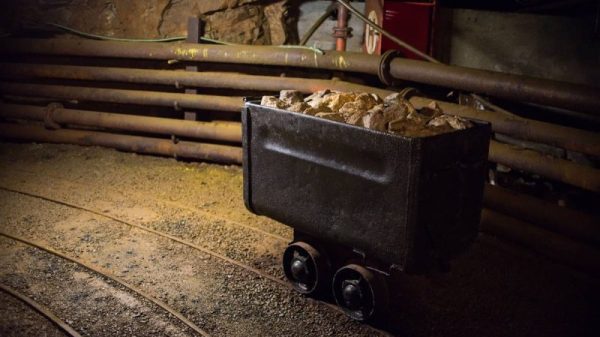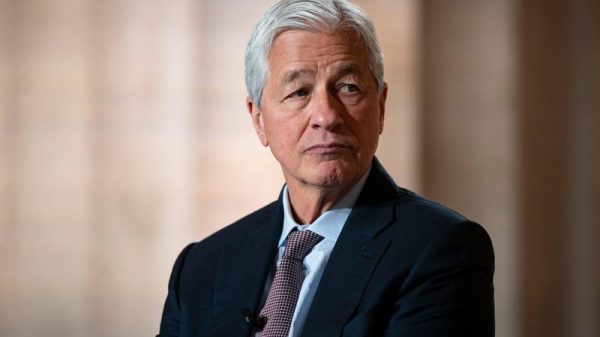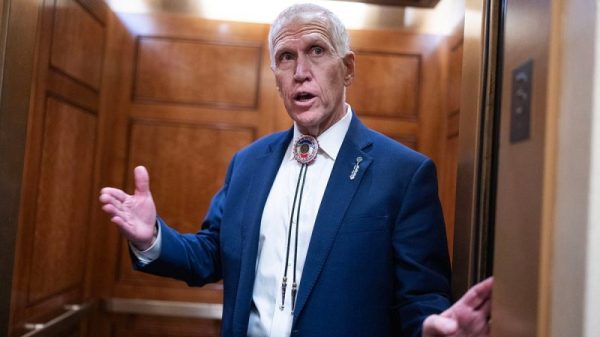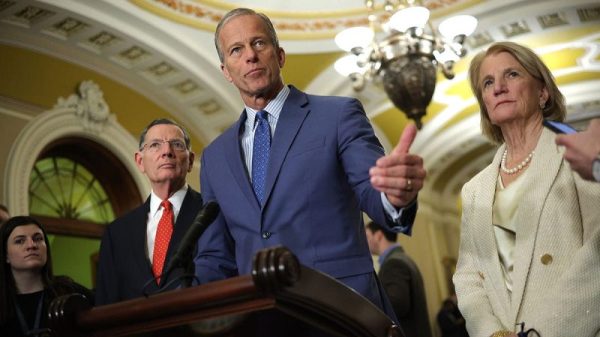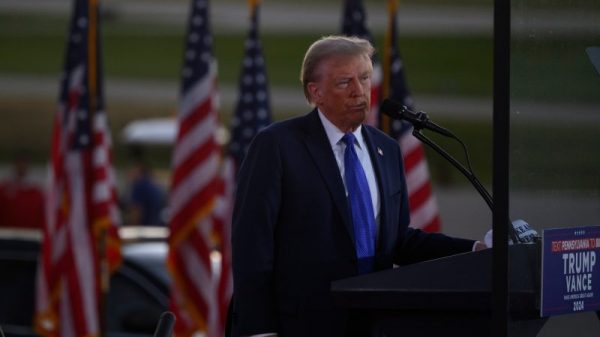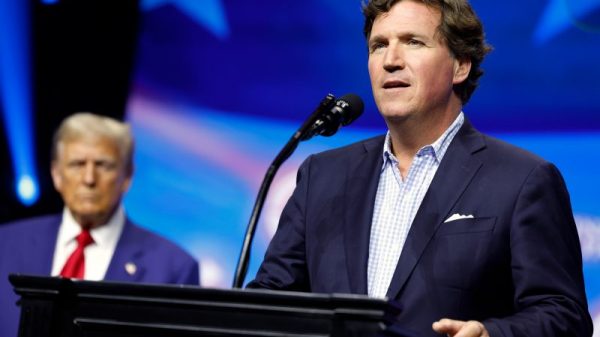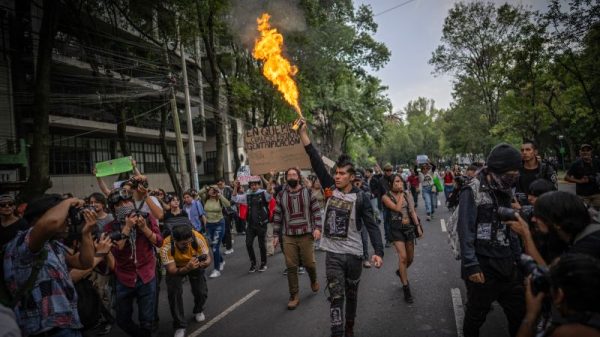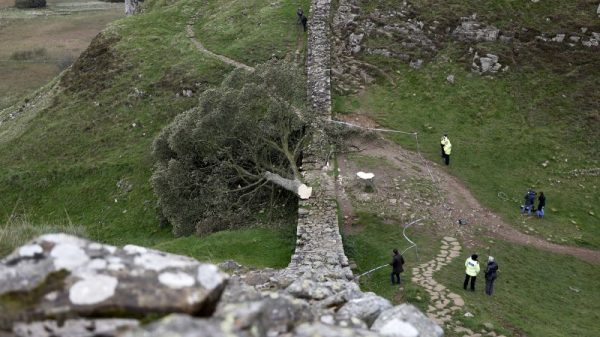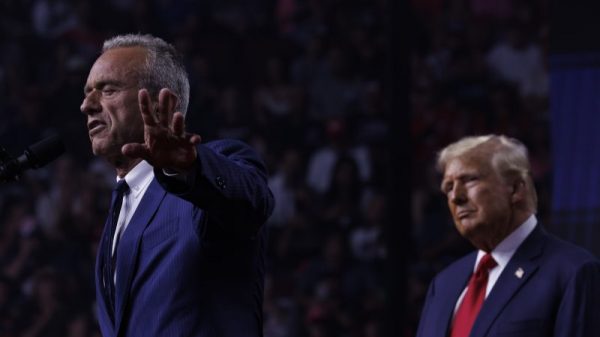U.S. officials on Saturday were preparing for a range of potential retaliatory actions by Iran for an Israeli strike that killed Hezbollah leader Hasan Nasrallah and said the Lebanese militant group is significantly degraded after Israeli military operations.
In a statement on Saturday, President Joe Biden said Nasrallah and Hezbollah, a U.S.-designated terrorist group, were responsible for “killing hundreds of Americans over a four-decade reign of terror.” Biden added: “His death from an Israeli airstrike is a measure of justice for his many victims, including thousands of Americans, Israelis, and Lebanese civilians.”
Israel’s escalation against Hezbollah in recent days has put the international community on edge as fears of a broader regional war are rising. Israeli strikes have pounded Lebanon and killed more than 1,000 people over the past two weeks, according to Lebanon’s health minister, and countries in the region were bracing for an intensification from either Hezbollah, Iran or its proxies.
Israeli operations have “decimated” Hezbollah as an organization, according to several senior administration officials, who spoke on the condition of anonymity to discuss private assessments and conversations. Biden and his top aides have been working to de-escalate the fighting between Israel and Hezbollah, just this week calling for a 21-day cease-fire that Israeli Prime Minister Benjamin Netanyahu rebuffed. U.S. officials said they did not know Israel was going to launch an airstrike to try to kill Nasrallah, and that they were also caught off guard by an Israeli operation earlier this month in which they detonated pagers and handheld radios used by members of Hezbollah.
Senior Biden administration officials on Saturday said that they were still assessing the situation in Lebanon and their next steps, warning that it was difficult to predict what might follow in the coming days. The most immediate risk, according to several senior administration officials, is how Iran chooses to respond to the killing of the leader of its most important proxy group in the region.
One of the senior administration officials said the United States was preparing for a range of possible responses, including a direct retaliation from Hezbollah or attacks from other Iranian proxies, such as the Houthis in Yemen; Iranian attacks on U.S. troops in the region; or a direct Iranian missile attack on Israel. The official said the United States felt “well positioned” to deal with the range of responses.
U.S. officials are still advising Israel against a ground invasion of Lebanon, cautioning that such a move could backfire by making it more difficult to weaken Hezbollah’s standing inside the country, according to the senior official. Israel has taken out the group’s command and control structure, in many ways limiting Hezbollah’s ability to respond, according to two senior administration officials.
Since the exploding pager operation earlier this month, Israeli officials have stressed that they wanted to avoid a full-scale war with Hezbollah and intended to exert military pressure on the organization to force it to negotiate with Israel.
But Israel’s campaign of covert operations, coupled with airstrikes that have essentially decapitated Hezbollah’s leadership, may have dealt a crippling blow, current and former U.S. and Israeli intelligence officials said. Hezbollah is now an organization in crisis, unable to trust its communications systems and struggling to find replacements to its leadership ranks, they said. Since July, Israel has eliminated the top command structure of Hezbollah, including of its elite Radwan special forces, according to a U.S. official. But it’s not clear that it is willing to negotiate.
On Saturday, the ball seemed to be in Iran’s court. Hezbollah’s shaken operatives were looking to Tehran for guidance on whether to launch a full-scale retaliation on Israel, including with missiles that could reach major cities, said two former Israeli intelligence officials who are familiar with current Israel operations and analysis. Iran is likely hesitant to give that go-ahead because is knows a massive Hezbollah strike could trigger a reprisal from Israel, further weakening Iran’s main proxy, and perhaps on Iran itself, one of the officials said. “Iran is afraid of a war,” he added.
“Israel has totally thrown Hezbollah off its game inside Lebanon, compromising its communications, killing its entire senior leadership, taking operatives off the battlefield, and slowly but surely destroying its weapons stocks,” said Marc Polymeropoulos, a retired CIA officer who served in the Middle East.
Iran will dictate what happens next in the region to a significant degree, Polymeropoulos said, cautioning that Hezbollah continues to pose a threat with its ability to conduct terrorist operations overseas. “Hezbollah is their key to deterring an Israeli strike against Iran’s nuclear facilities. They need to protect them or else Iran’s entire deterrence posture changes in the region.”
Nasrallah’s killing removes arguably the most powerful political figure in Lebanon.
“For Israel, what is the strategic victory? That’s the open question,” said one of the officials. “How do you ultimately restore calm and allow Lebanese and Israeli citizens to return to their homes?”
In the longer term, U.S. officials said they see an opportunity inside Lebanon, which has not had a president for two years and where Hezbollah is a major political party. The hope, one of the senior officials said, is that the U.S. government can work with the Lebanese government to strengthen its position in the country and weaken Hezbollah’s political support.
After Hamas militants rampaged through the Israel-Gaza border on Oct. 7, killing 1,200 people and taking some 250 hostage, Israel launched a retaliatory military campaign in Gaza that has killed more than 41,000 Palestinians, according to the Gaza Health Ministry, and fueled an ongoing humanitarian catastrophe. Hezbollah began firing rockets into Israel after the Oct. 7 attacks in support of its ally Hamas and has said it will not agree to a diplomatic solution with Israel until there is a cease-fire in Gaza.
Since Oct. 7, Hezbollah’s rocket attacks have forced Israel to evacuate about 67,500 people from communities in the north, according to the Taub Center, and many of those towns and cities remain largely empty. Israel’s retaliatory strikes on southern Lebanon have displaced more than 111,000 people, according to the United Nations.
The White House’s top goal during the nearly year-long war in Gaza has been to avoid a broader regional conflagration. But Israel has repeatedly ignored U.S. counsel to avoid escalation, and at several points over the past couple of weeks Biden officials said they did not know about major Israeli operations underway in Lebanon.
In recent days, Israeli and U.S. officials appear to have been talking past each other, with senior Biden administration officials saying Wednesday that Israel had agreed in principle to a 21-day cease-fire with Hezbollah. That deal never materialized, and Israelis say they were never anywhere close to agreeing.
One of the senior officials said it was Israel’s idea for the United States and other countries, including France, to call for the 21-day cease-fire in Lebanon because their goal has been to unlink a deal between Israel and Hezbollah from a cease-fire in Gaza.
But an Israeli official denied that the Netanyahu government originated the idea of a cease-fire, saying an immediate cessation of hostilities conflicted with Israeli goals of increasing military pressure on Hezbollah. The official said Israel views the current military operation in Lebanon as critical to convincing Hezbollah to drop its insistence that an Israeli cease-fire with Hamas occur before a cease-fire with Hezbollah.
The next steps for Israel or Iran following Nasrallah’s killing is the source of intense diplomatic discussions.
Andrew Miller, who recently departed the Biden administration as the top diplomat for Israeli-Palestinian affairs, said all bets are off.
“We are in uncharted territory and anyone who speaks with certitude about what will happen should be treated with caution,” he told The Washington Post. “This is the first time Iran’s primary strategic asset faces an existential threat, but Iran remains wary of a regional conflict. Iran will respond but the timing, method, and magnitude of that response are almost impossible to predict.”
A senior Middle East diplomat agreed that Tehran will feel compelled to respond but said it may maintain its objective to avoid a full-scale war with Israel. “The Iranians know Israel can hit them hard so they have prioritized caution,” said the official.
If Israel does undertake a ground invasion, there is “some worry” in the Israeli government and also within the Biden administration that Israeli forces could be overextended. Israel last invaded Lebanon in 2006, an operation that many in Israel believe ended without a clear victor and left Hezbollah in a powerful position militarily.
Israel’s economy also has taken a major hit since Hamas’s Oct. 7 attacks, with its credit score downgraded and gross domestic product shrinking sharply. Trade, investment and tourism are down, and a broadening of the conflict would exacerbate that.
The Pentagon on Saturday did not disclose any additional measures to bolster security in the region, but has for months maintained a heightened state of readiness there, with air defenses deployed in multiple locations and warships arrayed across the region. They include a three-ship Navy-Marine Corps flotilla, the Wasp Amphibious Ready Group, that includes several thousand sailors and Marines who are trained in evacuation operations and could be called upon if the State Department declares one in Lebanon.
During his address before the United Nations, Netanyahu explicitly threatened to attack Iranian assets anywhere in the region.
“There is no place in Iran that the long arm of Israel cannot reach, and that’s true of the entire Middle East,” Netanyahu said.
Meanwhile, some diplomats suspect Israel will continue to mount strikes across Lebanon despite Secretary of State Antony Blinken’s calls for diplomacy and de-escalation.
“Israel will continue to hit Lebanon hard,” said the Middle Eastern diplomat. “They want to do as much as they can during the current U.S. political calendar.”
Michael Birnbaum and Dan Lamothe contributed reporting.

